In recent years, the Fintech market in Vietnam has developed very strongly, providing a variety of products and services. The number of Fintech companies has increased from 39 companies in 2015 to more than 154 companies by the end of 2021. This remarkable development has the "shadow" of banks with the combination of the strengths of both sides: technology, the acumen and flexibility of fintech with the reputation, customer base, and extensive network of banks. This "fate" brings benefits not only to banks and fintech companies, but the biggest beneficiaries are customers and, more broadly, the whole economy .
From competitor to partner
Mr. Tran Cong Quynh Lan, Deputy General Director of VietinBank, said that in recent years, digital banks have been very open in linking with fintechs and connecting businesses to expand channels for developing payment products and services such as: paying for airline tickets, e-commerce invoices, booking train and bus tickets, paying hospital fees, tuition fees, public services, etc.
The participation of Fintech opens up many opportunities not only for themselves but also for banks and consumers, contributing to promoting the goal of financial inclusion through providing financial services at low costs, better access, bringing many utilities and experiences to customers. One of the products that most clearly demonstrates the goal of financial inclusion is e-wallets developing postpaid wallet products linked with banks as a lending bridge.
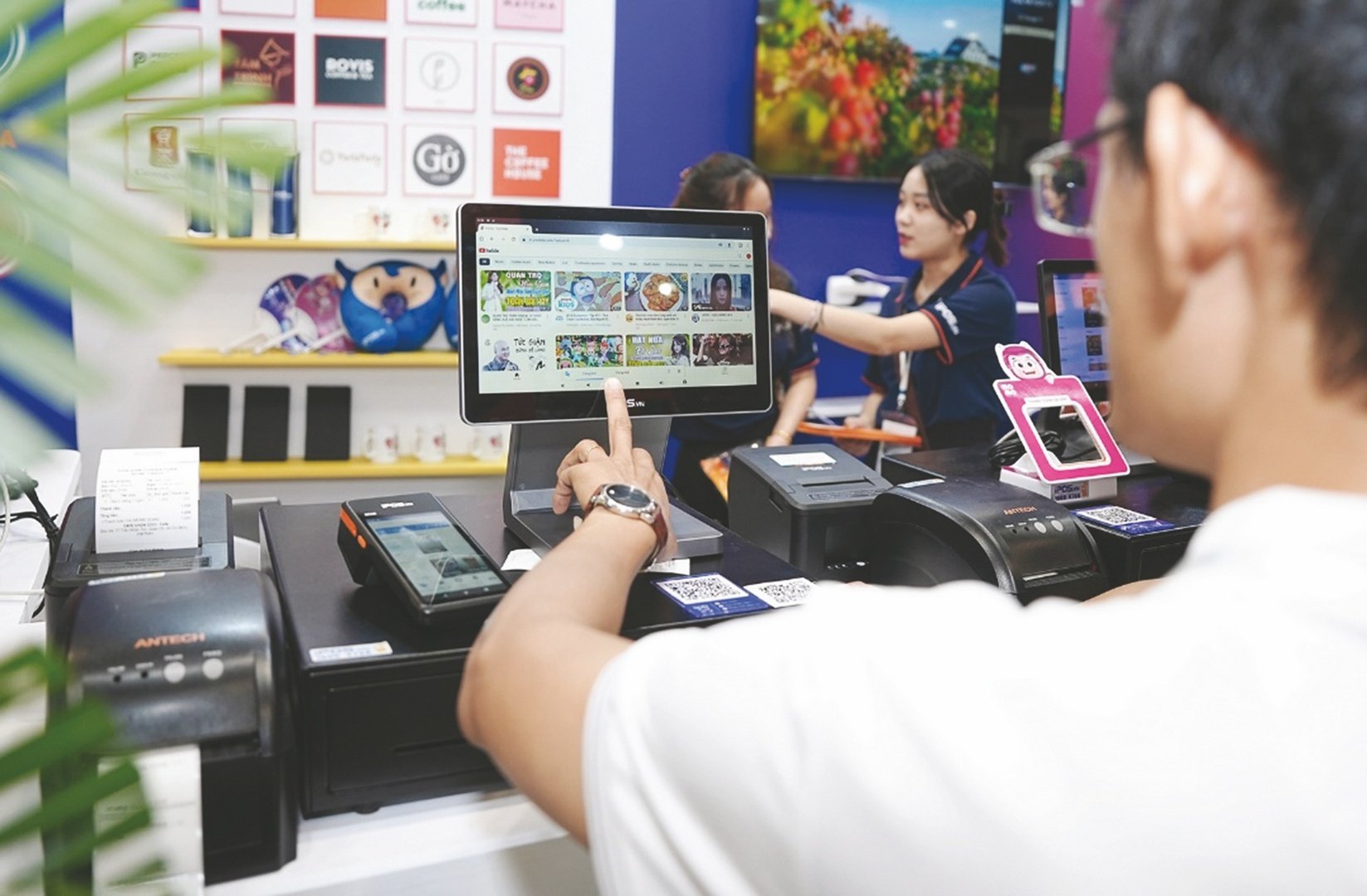 |
| Fintech manages sales and electronic payments for consumers |
Mr. Nguyen Ba Diep, co-founder of MoMo wallet, said that this fintech product, which uses a pay-as-you-go approach, has cooperated with TPBank to provide loans to serve the lives of millions of consumers. Of which, 60% of the disbursed amount is used to pay for essential expenses such as electricity and water; 30% is used to pay for daily food and drink needs. In particular, nearly 70% of postpaid wallet users do not have a credit history on CIC (National Credit Information Center), providing capital for hundreds of thousands of people who are students, manual workers, freelancers, and households with unstable incomes, who cannot access traditional loan support channels before. The Asian Banker - a provider of consulting information, in early 2023 assessed MoMo e-wallet as a platform widely connected with financial institutions, banks, and retail partners, providing users with superior financial products and services.
In addition to the Postpaid Wallet product, fintechs cooperating with banks and businesses also open up many diverse financial service products such as: loan payments, online savings deposits, online gold shops, fund certificates, international money receiving, etc. The cooperation helps banks and financial institutions save costs in approaching customers, shorten the process and time in customer identification thanks to technology applications, and increase the end-user experience.
A study by Western Union shows that up to 81% of Vietnamese users want international money transfer service providers to integrate with each other, bringing services to a payment application to create convenience for customers and in fact, the participation of fintechs diversifies the channels of transferring and receiving money across borders in the digital environment, in addition to traditional channels such as remittance companies... This contributes to increasing the amount of remittances transferred to Vietnam through official channels, minimizing risks for customers. According to the Migration and Development Report of the World Bank (World Bank) and the International Organization for Migration Cooperation (KNOMAD), in 2022, Vietnam will be in the top 3 countries receiving the most money from abroad in the Asia-Pacific region and in the top 10 countries in the world receiving money from abroad, reaching nearly 19 billion USD.
Fintech is more than just money transfers
Since March 2022, the task of developing the digital economy has been given high priority in the national development strategy. Vietnam is a country with nearly 100 million people in the golden population period, with many advantages to develop the digital economy. This is an opportunity for fintechs to participate in many fields, such as: e-wallet services, electronic payment gateways, collection and payment support, peer-to-peer lending, blockchain... Fintech companies today are not simply payment intermediaries, they have become providers of business management technology solutions for SMEs and micro-enterprises to save costs and organize seamless sales with cashless payments.
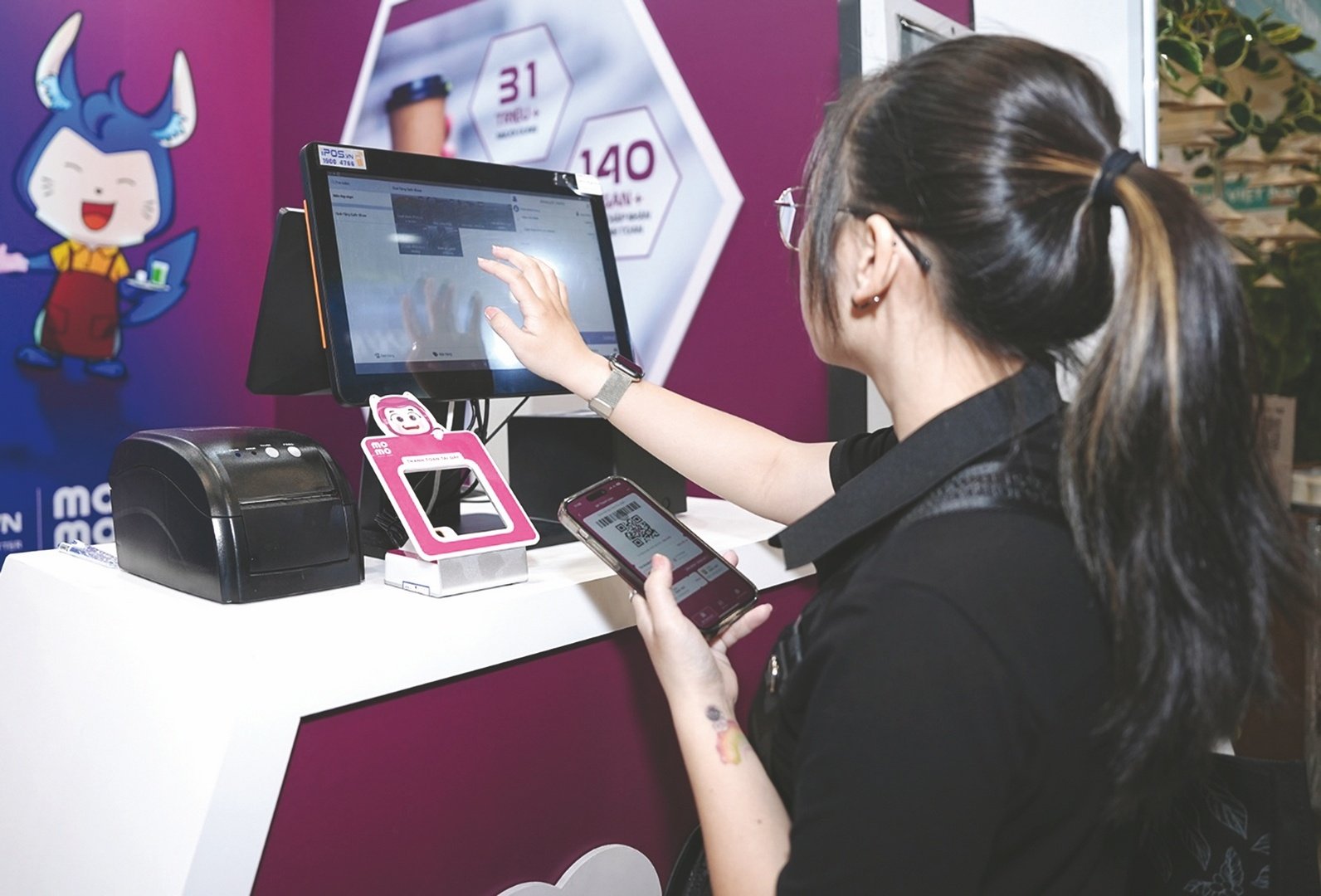 |
| E-wallets offer many promotions, attracting young users |
A report on the culinary business market in Vietnam by iPOS.vn said that in 2022, in the food and beverage (F&B) industry, up to 99% of businesses will face operational difficulties. Of which, nearly 50% of businesses will face difficulties in managing revenue, expenditure and loss of raw materials, 37.3% of businesses will face difficulties in marketing and communication. From this reality, fintechs have been "ordered" to create products connecting sellers and buyers, integrating marketing solutions to consumers and electronic payments.
Mr. Truong Van Phuoc - a member of the Prime Minister's Advisory Group, said that e-wallets are a trend, and new products are always welcomed by society. On the management side, they also "weigh and measure" the benefits for the economy when the market has more effective products and services with low management costs. The Government has been encouraging the development of cashless payments. However, according to Mr. Phuoc, e-wallets attract a large number of sellers and payments on applications, and at a certain point will become a large-scale center for goods and services trading on digital platforms. This is something that policymakers also need to consider.
According to current regulations, e-wallets operate on the 1:1 account principle - ensuring close coordination between payment intermediaries and banks. According to the Payment Department (SBV), the policy perspective in fintech development is to encourage ecosystem expansion, connect users to create a common space, reduce costs towards universal financial inclusion.
Currently, the market has about 38 e-wallet products, each with its own customer segment. However, the financial industry estimates that e-wallets with large transaction quantities and values are only about 4-5 products. MoMo and ZaloPay alone account for 70% of the payment market share of fintech companies. E-wallets with many users are currently mainly developed in large cities such as Ho Chi Minh City, Hanoi... in which young users use them the most. In addition to e-wallets of telecommunications networks such as ViettelPay, VNPTPay... are currently shifting to develop Mobile Money with customer segments targeting rural, remote and isolated areas.
Vietnam's e-wallet investment and business environment is considered by the technology community to be quite open compared to other countries in the region. However, up to now, payment service providers have not yet unified QR codes, business operations and management must be compared very complicatedly. Without QR code connectivity, it will be impossible to expand e-payments, and it will affect costs and inconvenience for users. In addition, for each e-wallet product that wants to link with banks and businesses, the wallet owner must demonstrate the ability to generate cash flow and increase sales for the sales unit. This condition is also a difficulty for fintechs.
Mr. Varun Mittal, Director of Fintech Consulting Services of E&Y Company in Southeast Asia, shared that Indonesia has standardized QR codes and has a common payment gateway, foreign businesses invest in payment systems and coordinate with domestic businesses to create an open ecosystem. Singapore applies a risk-based authentication mechanism to ensure everyone has a common standard, complies with government regulations. This creates conditions for fintechs to provide credit capital with large values so that businesses can easily borrow capital with large values.
Source



![[Photo] The 5th Patriotic Emulation Congress of the Central Inspection Commission](https://vphoto.vietnam.vn/thumb/1200x675/vietnam/resource/IMAGE/2025/10/27/1761566862838_ndo_br_1-1858-jpg.webp)
![[Photo] Party Committees of Central Party agencies summarize the implementation of Resolution No. 18-NQ/TW and the direction of the Party Congress](https://vphoto.vietnam.vn/thumb/1200x675/vietnam/resource/IMAGE/2025/10/27/1761545645968_ndo_br_1-jpg.webp)

![[Photo] National Assembly Chairman Tran Thanh Man receives Chairman of the House of Representatives of Uzbekistan Nuriddin Ismoilov](https://vphoto.vietnam.vn/thumb/1200x675/vietnam/resource/IMAGE/2025/10/27/1761542647910_bnd-2610-jpg.webp)

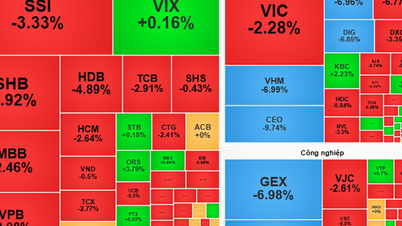



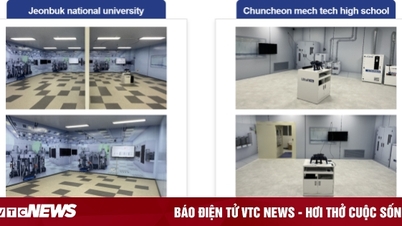

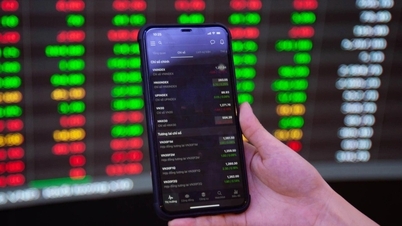


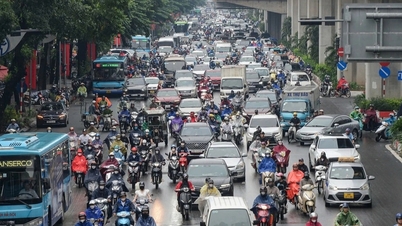






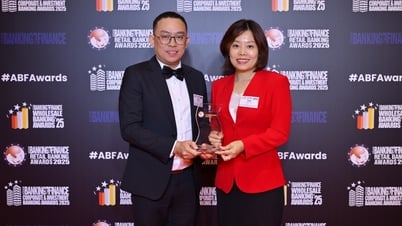



























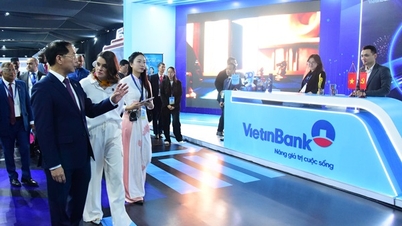














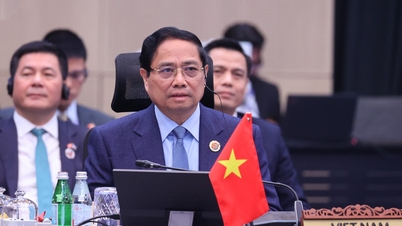






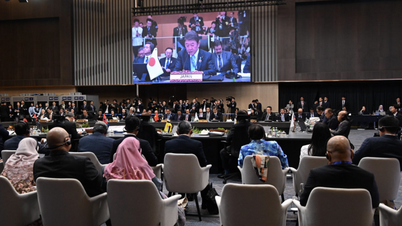

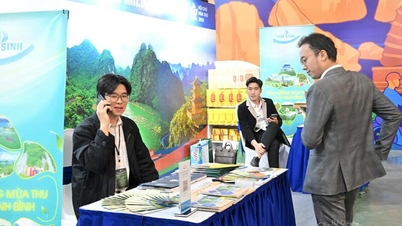
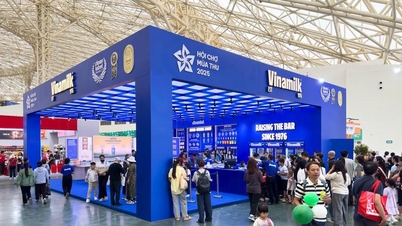
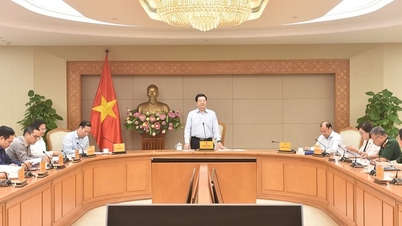

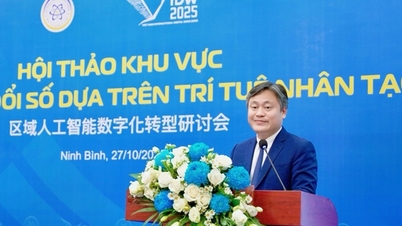
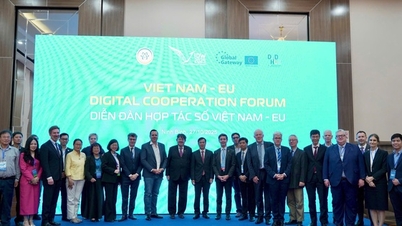
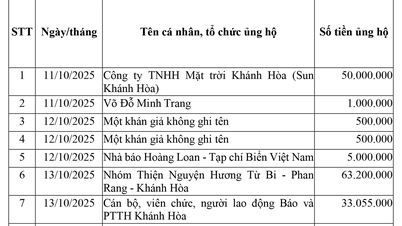

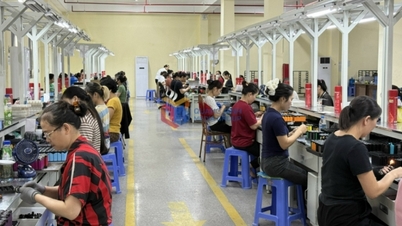

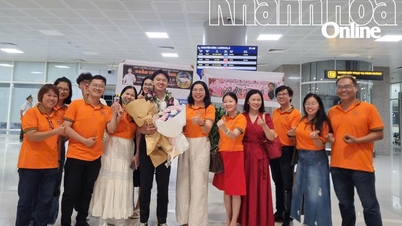
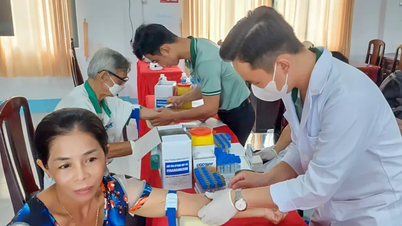


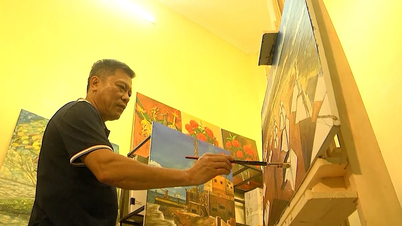













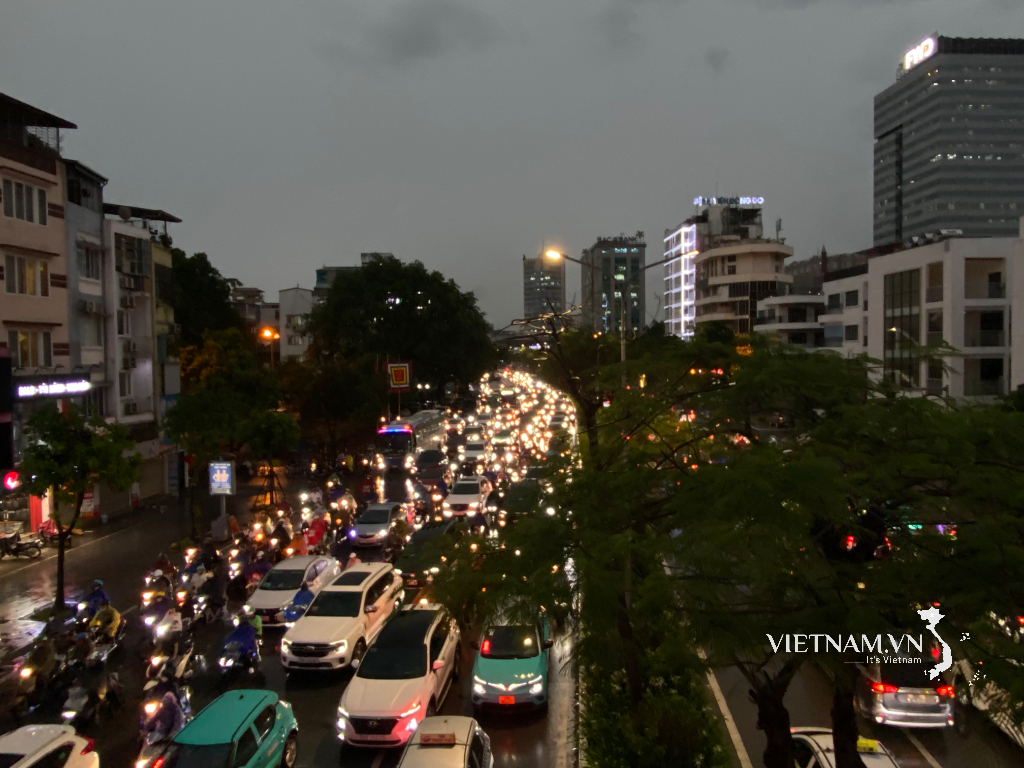



Comment (0)